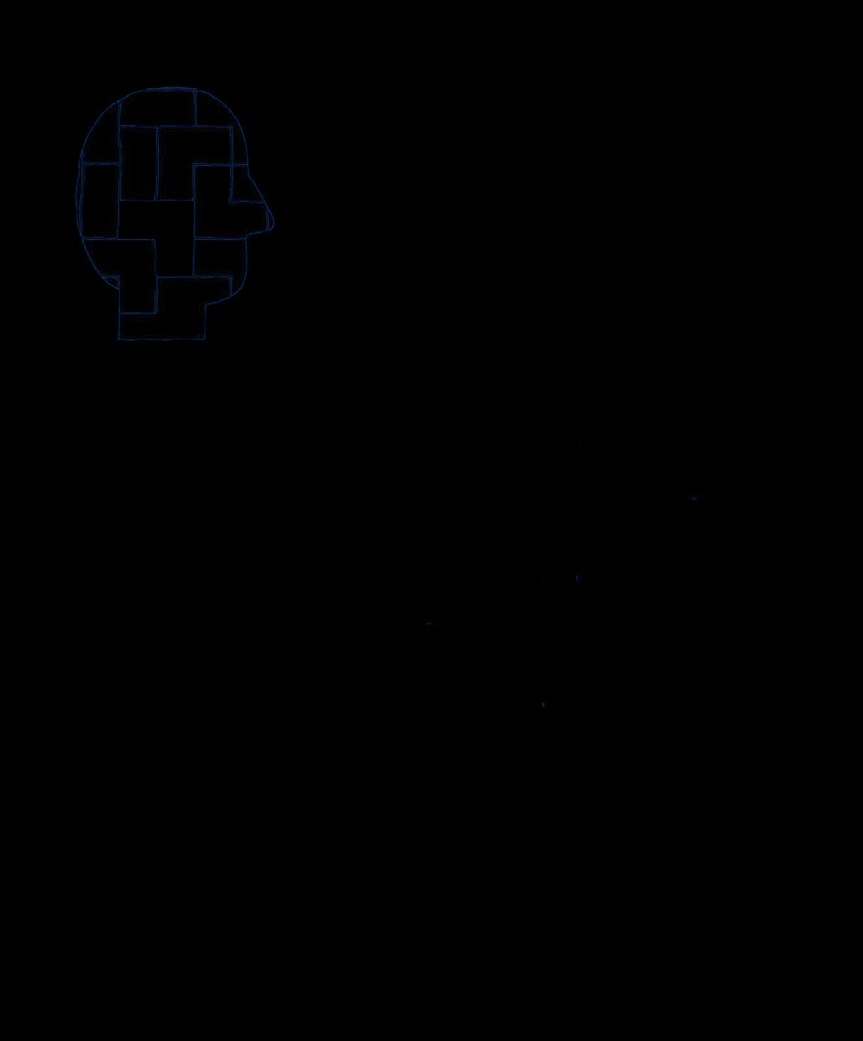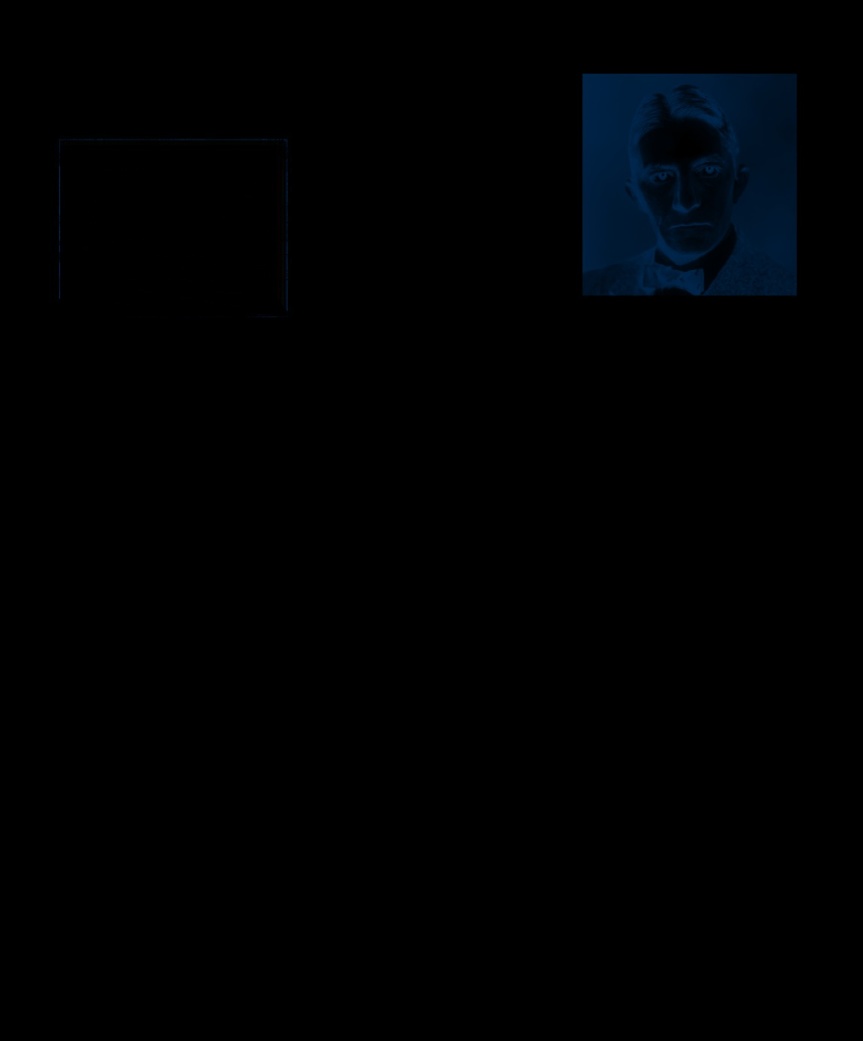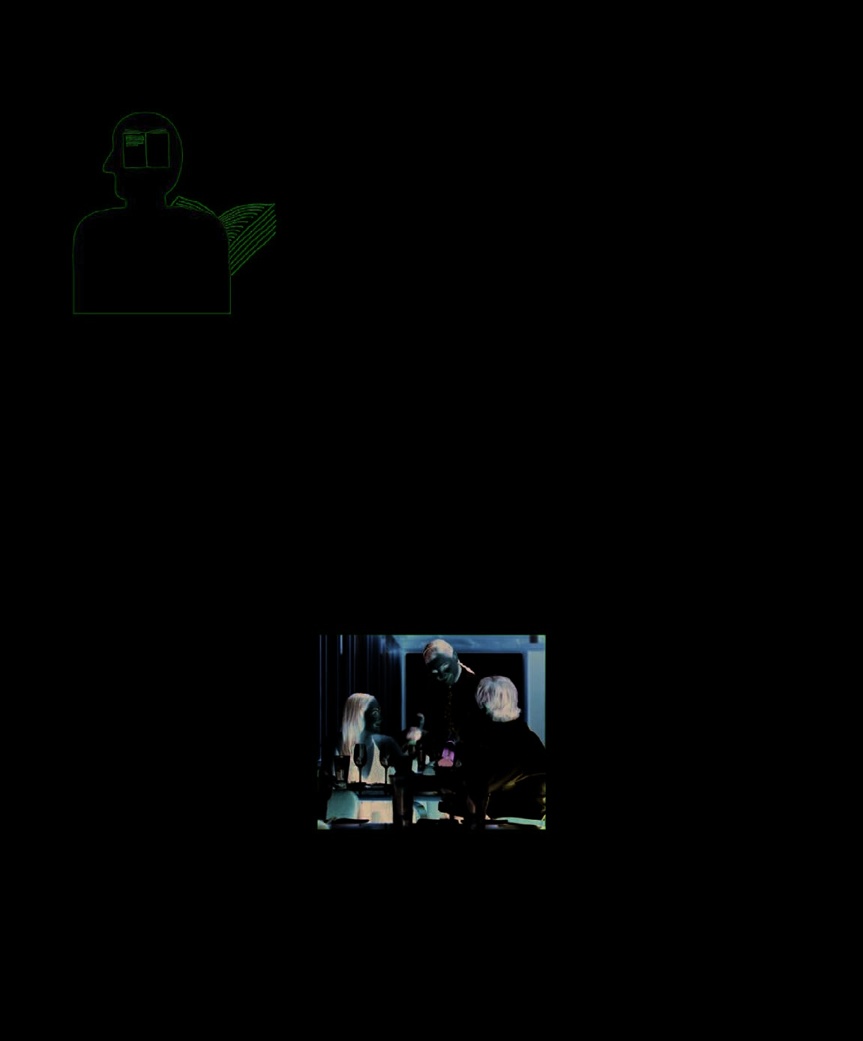The Psychology Book (51 page)
Read The Psychology Book Online
Authors: Unknown

the information-processing model
could provide a more effective
that our thoughts and actions are
to memory opened up the field,
therapy—and that it was more
determined by the make-up of our
making memory an important area
amenable to objective scrutiny. The
brains, and that they are like other
of study for cognitive psychologists,
cognitive therapy he advocated,
inherited characteristics: subject
including Endel Tulving, Elizabeth
later incorporating elements of
to the laws of natural selection. ■

160
INSTINCT IS
A DYNAMIC
PATTERN
WOLFGANG KOHLER (1887–1967)
IN CONTEXT
If a chimp tries to solve
…it pauses and
APPROACH
a problem using
trial and
considers the problem
,
Gestalt psychology
error
, but fails…
taking into account
everything around it…
BEFORE
1890
Austrian philosopher
Christian von Ehrenfels
introduces the concept
of Gestalt in his book,
It then applies this solution
… until it reaches an
On the Qualities of Form
.
to
similar problems
insight
that leads
in the future.
to a solution.
1912
Max Wertheimer
publishes
Experimental
Studies of the Perception
of Movement
, a landmark
in Gestalt psychology.
This pattern of insight-
Instinct is a
learning is
active
,
AFTER
not passive.
dynamic pattern.
1920s
Edward Tolman brings
together ideas from Gestalt
and behaviorist psychology in
his purposive behaviorism
Gestalt psychology (not to be
(now cognitive behaviorism).
confused with Gestalt therapy,
1935
Psychology of
I
n the late 19th century, a group
of German psychologists who
disagreed with the prevailing
a much later development) took
schools of thought developed a new,
Productive Thinking
by Karl
as its starting point the idea that
scientific, and distinctly holistic
concepts such as perception,
Duncker—a German Gestalt
approach, which they called Gestalt.
learning, and cognition should be
psychologist—describes
Wolfgang Köhler, who founded the
considered as wholes, not studied
experiments in problem-
new movement along with Max
by investigating their various parts.
solving and mental
Wertheimer and Kurt Koffka,
Köhler thought the dominant
restructuring.
explained that the word means
branch of psychology, behaviorism,
both “pattern” and, when applied to
was too simplistic and overlooked
their theory, “organized whole.”
the dynamic nature of perception.

COGNITIVE PSYCHOLOGY 161
See also:
Ivan Pavlov 60–61 ■ Edward Thorndike 62–65 ■ Edward
Tolman 72–73 ■ Max Wertheimer 335
behavior showed a cognitive trial-
and-error process rather than an
actual one; they were solving the
problem in their minds first, and
only after an insight (the “aha”
moment) tried out their solution.
This is contrary to the behaviorist
view that learning is conditioned
by response to a stimulus, and
reinforced by reward. The chimps
learned by perceiving the problem,
Wolfgang Köhler
Köhler studied chimpanzees
solving
not by receiving rewards.
task-related problems. He realized they
This was a demonstration
Wolfgang Köhler was born in
could actively perceive several possible
Estonia, but his family returned
of Köhler’s dynamic model of
solutions before finding the answer
to their native Germany soon
behavior, involving organization
through a moment of insight.
after his birth. He studied at
within perception, rather than
various colleges before
passive learning through response
completing a PhD in Berlin.
Pavlov and Thorndike claimed that
to rewards. The pattern (Gestalt)
In 1909, he and Kurt Koffka
animals learn by trial and error
of learning by insight—failure,
worked with Max Wertheimer
through simple stimulus–response
pause, perception, insight, and
at the Frankfurt Academy on
conditioning, but Köhler believed
attempt—is an active one; but
his perception experiments;
they were capable of insight and
this is not necessarily apparent to
these formed the basis of
intelligence. He was able to put this
someone watching the chimps’
Gestalt psychology.
to the test when he became director
separate attempts to solve the
In 1913, Köhler became
of an anthropoid research center on
problem, mainly because it is not
director of the Prussian
Tenerife from 1913–20, where he
possible to see the organization of
Academy of Sciences research
studied chimpanzees tackling a
perception in the chimp’s mind.
station in Tenerife, where he
number of problem-solving tasks.
What we call instinct, the
became stranded at the start
of World War I, remaining
apparently automatic response to
there until 1920. On his return
Insightful learning
solving a problem, is affected by this
to Berlin, he served as director
What Köhler observed confirmed his
process of insight learning, and is
of the Psychological Institute
belief, and also demonstrated that
itself an active, dynamic pattern. ■
until 1935, when he emigrated
problem-solving and learning could
to the US to escape the Nazi
be explained in terms of Gestalt.
regime. He taught at several
When faced with a problem, such as
US colleges, and was elected
how to reach food in an inaccessible
president of the American
place, the chimpanzees were
Psychological Association for
frustrated in their initial attempts,
1959. Ulric Neisser described
but would then pause and apparently
Insight has the appearance
him as “a genuinely creative
take stock of the situation before
of a complete solution with
thinker as well as a person of
attempting some kind of solution.
reference to the whole
great dignity and honor.”
This often involved using tools—
layout of the field.
Key works
such as sticks or crates that were
Wolfgang Köhler
lying around in their play area—to
1917
The Mentality of Apes
reach the food. When subsequently
1929
Gestalt Psychology
faced with the same problem, they
1938
The Place of Values in
instantly applied the same solution.
a World of Facts
Köhler concluded that the chimps’

162
INTERRUPTION OF A TASK
GREATLY IMPROVES
ITS CHANCES OF
BEING REMEMBERED
BLUMA ZEIGARNIK (1901–1988)
IN CONTEXT
APPROACH
W
hile researching for her experiment in which participants
doctorate in Berlin,
were given simple puzzles or tasks
Russian psychologist
to do. They were interrupted during
Bluma Zeigarnik was told by her
about half these tasks. Later, when
Memory studies
professor, Kurt Lewin, that he had
asked how well they could remember
BEFORE
noticed waiters could recall details
the activities, it became clear that
of orders that were still not paid for
they were twice as likely to recall
1885
Hermann Ebbinghaus
better than details of orders they
details of the interrupted tasks,
publishes his pioneering book,
had completed. This led Zeigarnik
whether these were ultimately
Memory: A Contribution to
to wonder whether unfinished tasks
completed or not. Zeigarnik
Experimental Psychology
.
have a different status in memory,
reasoned that this could be due to
1890
William James in
The
and are remembered better, than
the task lacking closure, leading
Principles of Psychology
makes
finished ones. She devised an
to the memory being stored
the distinction between
differently, and more effectively.
primary (short-term) and
This phenomenon, which
secondary (long-term) memory.
became known as the “Zeigarnik
effect,” had important implications.
AFTER
Zeigarnik proposed that students,
1956
George Armitage Miller’s
especially children, retained more
The Magical Number Seven,
if they had frequent breaks while
Plus or Minus Two
revives
studying. But little notice was
interest in the study of memory.
taken of her ideas until memory
once again became a key subject
1966
Jerome Bruner stresses
for research in the 1950s. Since
the importance of organization
then, Zeigarnik’s theory has been
and categorization in the
accepted as a major step in the
learning process.
The “Zeigarnik effect”
can be
understanding of memory, and
demonstrated by the fact that a waiter
1972
Endel Tulving
has found practical application
is more likely to remember details of
distinguishes between
an order that has not yet been paid for,
not only in education but also in
episodic memory (of specific
than one that has been completed.
advertising and the media. ■
events) and semantic memory
(of factual information unrelated
See also:
Hermann Ebbinghaus 48–49 ■ Jerome Bruner 164–65 ■ George to an event or situation).
Armitage Miller 168–73 ■ Endel Tulving 186–91 ■ Daniel Schacter 208–09
